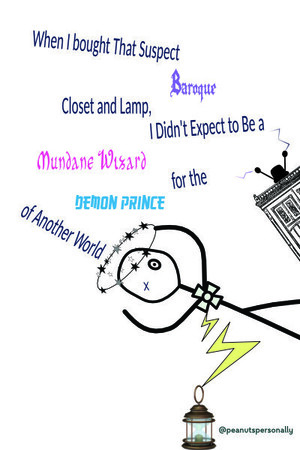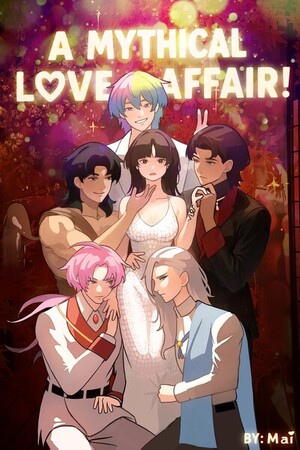Chapter 16:
Dark-Lordpedia.
Isekaivania (Part One): "How I Survived a Demon Castle Without Dracula, Being More Useless Than a Broken Whip"
Clang-crash!
Thud!
Steel rang out in the meadow — clang, clash, thunk!
Each strike echoed with raw weight as Ayato struggled to match the seasoned precision of Sir Dakim, whose blade cut through the air with a rhythm carved by years of battle.
Ayato’s swings, faster but uneven, sparked each time they collided, his breath growing heavier with every failed attempt to break the knight’s guard.
Meanwhile, a frigid hiss swept across the training ground.
Tsshhhhh! Frost spread like a creeping storm, shards of ice whirling through the air as Vera unleashed her spells against a swarm of levitating Demented Eyeballs.
The creatures’ veins pulsed with foul light before bursting into shards of frozen gore under her magic. Determined to not be a burden after the Cerberus fight, she pressed harder, her hands trembling with both focus and frustration.
And as for Sylphidia… she remained curled up inside the flute, sunk in her divine hangover.
A faint, drunken hmmph~ leaked out, followed by a ripple of greenish sparks that fizzled into the air — a magical snore that did little more than remind the others of her blissful uselessness.
Isolde, meanwhile, busied herself with ink and parchment, her quill dancing in precise strokes. To anyone else it might have seemed like scholarly diligence — to her, it was simply the only tolerable way to impose order on a world drunk with absurdities.
“Dark Lord Candidates… Infernal Tyrants… Lone Demons…” she murmured as she wrote, each title weighed down with disdain. The terms sounded less like fearsome threats and more like poorly chosen roles in a grotesque play.
Yet, the more she traced their connections, the more she felt the subtle chill of design — threads pulling taut in the shadows, patterns that refused to remain coincidental.
Her lips curved in the faintest, sardonic smile as she dipped her quill again. “Ah, but what a charming puzzle. I do so adore when the pieces insist on drawing blood.”
[Manuscript: Isolde's Point of View]
“It is said that our gracious world, in its infinite perversity, does not simply summon outsiders as curiosities — it molds them, carves them into shapes both grotesque and inevitable. The grimoires are clear enough, though hardly flattering in their descriptions.”
On the Dark Lord Candidates
They arrive as refuse from other realms — once kings, heroes, scholars, and sometimes the sort of mediocrity no one would miss. Stripped of their former context, they are drenched in the shadow of Luminovia, and their souls twist accordingly. Their ambitions, traumas, or petty vanities become the clay from which monstrosities are sculpted.
From these, two principal forms seem to crystallize:
The Infernal Tyrants
Ah, the monarchs of delusion. These creatures anchor themselves to domains the texts call Pseudo-Castles — mockeries of fortresses, stitched together from both stone and psyche.
Imagine a kingdom as the diary of its ruler: every tower, every hall, an architectural confession of obsession. When the Tyrant falls, so too does his fortress, crumbling back into silence.
Advantages:
Armies shaped in their image, loyal in their monstrosity.
Territorial dominion, feeding upon the land and those foolish enough to wander near.
An unending capacity to attract zealots, vassals, or the tragically gullible.
Weaknesses:
Shackled to their domain, their strength wanes beyond it.
Their fortresses are both sword and scabbard: glorious, yet fatally vulnerable.
And, of course, their egos — which no sword need sharpen.
The Lone Demons
Then there are the wanderers, the errant notes in this discordant symphony. Unlike the Tyrants, they conjure no fortresses, command no armies.
Their curse is mobility — which, perversely, becomes their greatest strength. They can vanish into societies, meddle in histories not their own, and slip through the cracks like smoke.
Advantages:
Freedom of movement; unbound by any single place.
Elusive, impossible to “siege” or root out.
Adaptive, opportunistic — capable of surviving through wit where might fails.
Weaknesses:
Solitary by necessity: no armies, no thrones.
Their power grows at a slower pace than their crowned counterparts.
Many are quietly consumed by the world itself, devoured from within as the demonic corruption festers.
“From what I have observed thus far — Maxwellious Rossewise, the Infernal Tyrant of the Tree of Rotten Wisdom, and Tatsuya Homura, the Yokohama Arsonist and the Lone Demon of Pyromancy — the grimoires are regrettably correct. The question is not whether such beings exist, but how long before their games draw us in as unwilling pieces. Charming, really.”
Yet there is one irregularity I cannot ignore: Ayato Nagatoshi.
A Lone-Demon, if one is to trust these classifications, yet unlike the typical type described — less a wandering dhampir of chaotic tendencies, more a… rogue cog in a machine not designed for him.
He is neither a Tyrant, nor a standard Lone-Demon. He does not follow the expected pattern, which, one might admit, is delightfully inconvenient.
“How curious,” she notes, dipping her quill. “One is tempted to either pity him, or keep an eye on the inevitable chaos he will stumble into — likely both.”
Before she can continue, a sharp thwack interrupts her musings. Sylphidia’s flute, sent flying across the meadow with surprising velocity, collides with Isolde’s forehead.
“By all the saints…!” she hisses, pressing a hand to the rising bruise, while Ayato merely shrugs.
There is something different about him — not just the usual chaotic luck. The swing that sent the flute hurtling across the study carried a weight that felt… unnatural.
His muscles seemed subtly amplified, as if the very essence of Cerberus, absorbed into him, had left behind a permanent boon.
Isolde scowls, both in irritation and fascination, muttering under her breath: “Well, I suppose even anomalies have their advantages… if one is foolish enough to survive them.”
***
Night had fallen, and the shadows carried more than just the chill of evening. Monsters continued to spawn relentlessly, and even a team as capable as theirs could do little against the world’s cruel respawn mechanics.
The four sought refuge in a pantheon, huddling under the protection of a divine statue. Sylphidia was, unsurprisingly, the first to voice her complaint.
"What ungrateful mortals, depending on a blessed spring when I could manage that myself~" she cooed, lounging atop the altar with feigned irritation.
The others exchanged glances, letting her theatrics pass while still on guard. Amid the quiet, Isolde’s curiosity resurfaced, sharp as her quill.
She turned to Sir Dakim, her eyes narrowed.
"A loose end bothers me," she began, her tone carefully polite but laced with subtle impatience. "Where did you acquire the Ashen Lash? The blessed weapon vanished with Luke Valmont, the last bearer, did it not?"
Dakim hesitated, the faintest flicker of unease crossing his stoic features. The statue’s cold gaze bore down on them, indifferent to human matters, while the night outside whispered promises of dangers yet to come.




Please sign in to leave a comment.